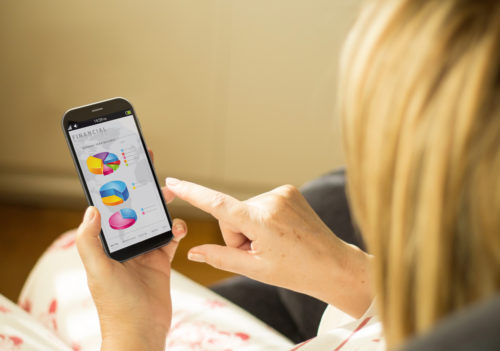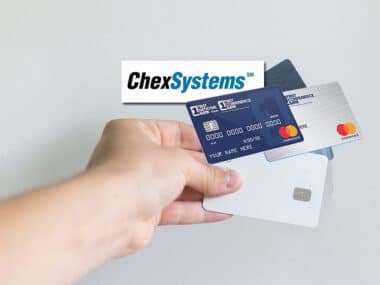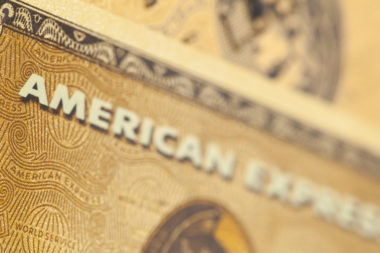Personal finance apps make it easy for us to keep track of our spending habits, budget better, and ultimately, save money. In fact, there has been an increase in the frequency of people using their finance apps — sometimes tapping into them 10 times a week or more.
However, there are still many people who are worried about their data being compromised, as financial technology does come with a certain risk of personal identity theft. While there are many myths surrounding identity theft, it is still something consumers should be wary of, especially when it comes to entrusting their information to online sources.
It’s all about the app you choose to use. Many personal finance apps are created by banks that have their customer’s security in mind, protecting consumers from common cyber scams.
Despite the many misconceptions surrounding identity theft and the security of financial apps, there are many benefits to using financial apps. Discover how you can benefit from the use of a personal finance app, as well as tips on how to protect yourself from identity theft when using these financial applications.
Table of Contents
Smaller Chance of Late Fees
Using financial apps can help you stay on top of your bills and save on late fees. Because these apps can send alerts and notifications about when payments are due, you’re never at risk of missing a payment. In most cases, financial apps will allow you to schedule payments as well, further eliminating your risk of having to pay a late fee.
Easier to Save
Another benefit of using personal finance apps is that they make it easier to track all of your finances. By maintaining all of your income and spending on one platform, you’re able to see a snapshot of where your money goes. With this understanding, you’re able to make smarter budgeting decisions and see areas where you can cut back — if not eliminate — some of your expenses.
Many personal finance apps also give users the ability to set up automatic savings. This simplifies the way people save, whether it’s for an upcoming vacation or something more significant, such as retirement.
Set Financial Goals
Yet another benefit of using personal finance apps is the ability to set your own financial goals. You can use a number of personal finance apps to track the progress of your goal, monitoring how much you have deposited into a savings account during any given month. Plus, this makes it easy to strategize the remainder of a savings plan. Whether you want to take an expensive vacation, pay off student loan debt, or save money for a large purchase such as a car or house, personal finance apps can help.
Similarly, there are personal finance apps designed to help you with other financial goals such as investing or building an emergency fund. No matter what your personal financial goals might be, there’s a personal finance app out there that can help you achieve them.
More Access to Finances
Perhaps the most important aspect of using a personal finance app is that it gives you more access to your finances. You no longer have to go to the bank or log on to a computer to check the status of your personal finances. With apps, you’re always in the know.
Personal finance apps put all of your personal financial information at your fingertips, including how much is in each of your accounts. This alleviates the worry associated with overdraft fees. Knowing how much you have in your account at any given time means you aren’t at risk of spending more than you can afford.
While identity theft can destroy your credit, personal finance apps may help you prevent it. This constant access to your funds also helps you protect yourself from identity theft and credit card fraud. By knowing when and how your money is being spent, you’re able to flag any extraneous or fraudulent charges to your account.
Many personal finance apps make it easy to track these types of fraud. You can also set up early fraud detection so that your financial institution monitors your account for you. In the event that your card is lost or stolen and then used, you’ll be notified as soon as possible.
How to Protect Your Data
Having your financial information or personal identity stolen can wreak havoc on your credit score, as well as your entire life. In order to protect your privacy and personal information from identity theft and other risks commonly associated with personal finance technology, you should:
- Use unique passwords: By using a strong password, you’re better protecting yourself from fraud and theft. Use a different password for each account you create. In the event that your information is hacked or stolen, your other accounts won’t be at risk. Also, comply with a site’s need for your password to be changed. If you’re asked to reset your password every few months, do so for further protection.
- Create different usernames: Just like with your passwords, the username you use for each online account you create should be unique. From online banking to online shopping, every user name should be different. Again, this protects your other accounts from being accessed in the event that one is hacked into.
- Verify your identity with two-factor authentication: If possible, request that two-factor authentication be used to access your personal financial information. This is an additional layer of security that requires additional proof of identity.
- Use private internet connections: If you’re accessing personal data, a private internet connection is imperative. This will help protect any credit card information your web browser saves, as well as other sensitive information.
- Be wary of common scams: Many people, including the elderly, are at risk of identity theft scams. When it comes to preventing fraud, pay attention to current trends in technology scams so that you know what to look out for.
- Enlist in an identity theft protection service or credit monitoring: As a consumer, you might take all of the necessary precautions you can and still be at risk of your information getting out in a company data breach. When you enroll in a protection program, whether it’s a credit card security program that protects your purchases, or a credit monitoring service that keeps an eye out for data breaches, there are external parties that will be ready to help prevent your information from getting into the wrong hands.
While technology is not a substitute for a firm understanding of how the world of finance works, personal finance apps can make it easier to understand your financial situation and ultimately budget better through strategic decisions that allow you to save. With an understanding of how to safely use online banking and other personal finance apps, you’ll be able to better protect yourself from credit card fraud and identity theft.
Image Source: https://depositphotos.com/





